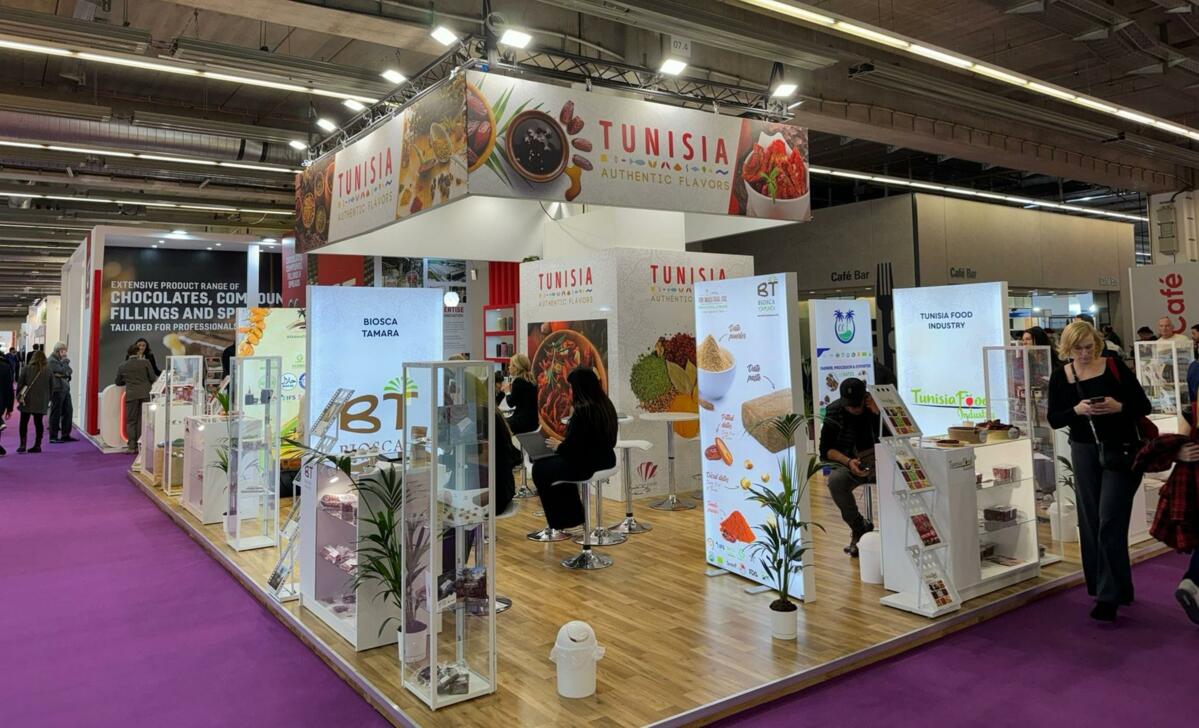Case Study: How SIPPO Tunisia stimulated successful collaboration between BSOs CEPEX and APIA
The Swiss Import Promotion Programme (SIPPO) in Tunisia is working to shift the focus of Business Support Organizations (BSOs) from broad sectors, such as the agricultural sector, to specialized sub-sectors, such as natural ingredients. A recent case study explored how this targeted approach has facilitated collaboration between two national BSOs, CEPEX (Centre de Promotion des Exportations) and APIA (Agence de Promotion des Investissements Agricoles), and its subsequent impact on Tunisian exporters. Dive into this very insightful description of a successful process!

Picture: The Tunisian pavilion at FIE 2024, organized jointly by CEPEX and APIA with the support of SIPPO Tunisia.
About five years ago SIPPO recognized the untapped potential of Tunisia's natural ingredients sector. This sub-sector is integral to Tunisia’s economy but was previously overlooked within the country and therefore underrepresented in global markets.
Identifying the potential of new sectors for Tunisia’s exports
As early as 2019 SIPPO explored with PAMPAT, another SECO-funded project, the potential of new sectors and Tunisian SMEs for the FiE (Food Ingredients Europe[1]). It also organised a workshop with the German IPD for strategic planning with BSOs in 2021. In 2022 SIPPO identified APIA and CEPEX as key players in the natural ingredients sector. APIA operated under the Ministry of Agriculture, focusing on agriculture and agri-food, while CEPEX lay under the Ministry of Trade and Commerce, with a broader trade promotion mandate. Prior to SIPPO's intervention, CEPEX and APIA worked independently of each other, but there was a certain lack of complementarity and coordination. SIPPO improved this situation and led to synergies between them in the field of natural ingredients, such as the joint organisation of the Tunisian pavilion at the FIE, which was initiated by SIPPO Tunisia in 2022.
Bringing the Natural Ingredients sector into the spotlight
This important strategic move extended far beyond mere presence at specific events. It encompasses a broader vision that has ultimately succeeded in bringing the natural ingredients sector to the forefront of Tunisia's export initiatives. The recipe? SIPPO worked to build the capacity of institutions such as CEPEX and APIA. SIPPO identified existing gaps in their processes and supported them in the preparation, implementation and follow-up of trade fairs, focusing on three specialised events: in-Cosmetics, BIOFACH and Food Ingredients/Health Ingredients Europe (FiHiE).
The joint efforts were a convincing success
Overall, both the CEPEX and APIA management teams reported that SIPPO's support had led to improvements in their approach to the 2022 and 2023 trade fairs. SIPPO's initiative also promoted a new "outbound" approach, a new service within APIA and CEPEX for their exhibitors, that enabled some companies (like Biovalley and CFF) to succeed in European markets. Another success was a study tour to the Netherlands, which resulted in 14 new products being introduced to the cosmetics industry.
In addition, Herbalya and Biovalley, two young companies operating in the prickly pear sub-sector, benefited from the new, more specialised focus of the BSO. They gained visibility, better understood market dynamics and improved their product presentation and promotion strategies. Biovalley went from having no export customers to having a portfolio of 120 potential customers, hiring 32 direct employees and working with 120 indirect employees (mostly women). Manar Agros, which specialises in both organic and conventional dates, benefited from APIA's support for their participation in BIOFACH, which enabled them to increase their presence in the organic dates market.
“We participated in BIOFACH trade fair for 30 years now. But with SIPPO’s support during these (last) two editions, we felt we saw the trade fair with another set of eyes. And we learned how we can improve the offer and service to exporting companies.”
APIA Export Promotion Lead
Sustainable, long-term impact
SIPPO and the BSOs are optimistic about the long-term prospects for the BSOs' ability and willingness to maintain and develop the revised fair processes. For example, APIA is applying the learnings from SIPPO to other sectors such as fresh fruit and vegetables. This is a clear confirmation of how the model applied in Tunisia unleashes the potential of strategic cooperation and targeted support in trade promotion, and that it can serve as a blueprint for similar initiatives elsewhere.
[1] Food Ingredients Europe has been uniting the world's leading food & beverage suppliers, buyers, R&D experts and production specialists for over 30 years. Originally taking place biennially in a major European city, it now operates annually in conjunction with Health Ingredients Europe.
The full case study:



 Ukraine
Ukraine











